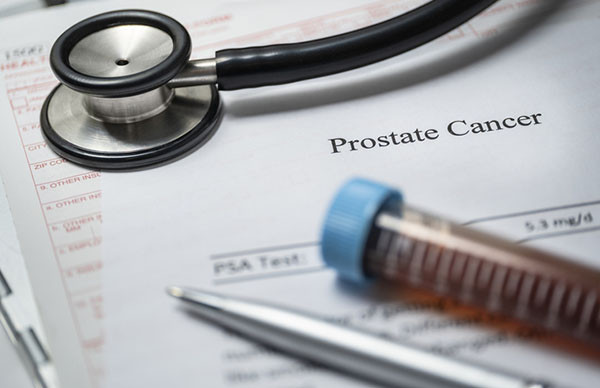Prostate cancer: How long should hormonal therapy last?
Men with high-risk tumors obtain the greatest benefit from long-term treatment.

Hormonal therapy is a cornerstone of prostate cancer treatment, but it has burdensome side effects. Men who take these testosterone-blocking drugs experience fatigue, loss of muscle mass, and a heightened risk of cardiovascular diseases. Doctors and patients alike are therefore highly motivated to use hormonal therapy only for as long as necessary.
But how long is long enough? A recent study provides needed clarity.
Study process and results
Researchers working at 10 hospitals in Spain enrolled 355 men with newly diagnosed prostate cancer that was still confined to the prostate and seminal vesicles (adjoining glands that produce semen). The men were divided into two groups: one group received a short course of hormonal therapy lasting four months, and the other group was treated for a longer duration of 24 months. All the patients were also treated with high-dose radiation.
After 10 years, only men who had been diagnosed initially with high-risk prostate cancer (prostate cancer with biological features that predict aggressive spread) benefited from the long-term treatments. Specifically, 67.2% of these men avoided subsequent increases in prostate-specific antigen (PSA) that signified worsening cancer. By contrast, 53.7% of men with high-risk cancer who received four months of hormonal therapy avoided similar PSA increases. Importantly, 78.5% of high-risk men who had long-term hormonal therapy were still alive after 10 years, compared to 67% of high-risk men treated with hormonal therapy for four months.
Among men with intermediate-risk prostate cancer, the duration of hormonal therapy made little difference. Just four men with intermediate-risk cancer developed worsening cancer that had spread to other sites in the body. Two came from the short-term treatment group, and two from the group that received hormonal therapy for 24 months. And after 10 years, none of the intermediate-risk patients had died from prostate cancer, regardless of how long the hormonal therapy treatments lasted.
Experts’ opinions
“This study settles the question of length of hormonal therapy for most patients with high-risk prostate cancer who are also treated with radiation,” says Dr. Nima Aghdam, a radiation oncologist at Harvard-affiliated Beth Israel Deaconess Medical Center in Boston who did not participate in the research. “It provides a robust comparison of options available to our patients, and in my view gives them the opportunity to make an informed decision about the length of hormonal therapy based on high-level evidence.
“In terms of the absolute duration of treatment, I think there is likely a happy medium between four and 24 months for certain patients who have specific high-risk features. I encourage patients to discuss this option with their doctors. However, this study does not answer the question of whether all intermediate-risk patients need four months of hormonal therapy, and we should continue to refine our approach to that very common scenario.”
The study did not include men with low-risk prostate cancer, “for whom the current standard is no hormonal therapy at all,” added Dr. Anthony Zietman, a professor of radiation oncology at Harvard Medical School who also did not participate in the research.
